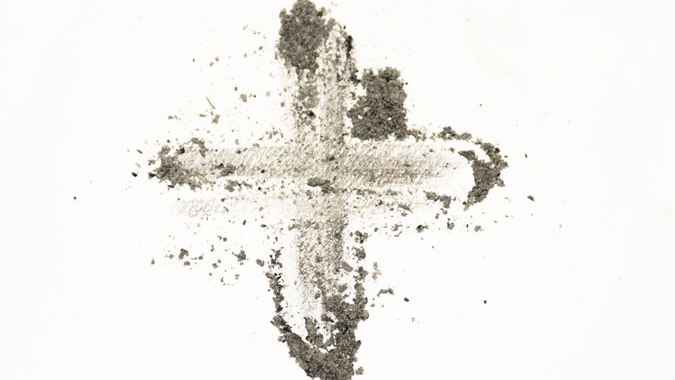Would it be too terribly weird of me to admit that I’m excited it’s Ash Wednesday today? That I’ve been looking forward to this day for a few weeks now?
This is the day that the Church returns, repents. It’s the beginning of the time of Lent—a time of somber reflection and the hope of a closer walk with God. A time of the lengthening of days as we walk into spring and toward new life. I didn’t grow up celebrating Lent. In my particular faith tradition from early childhood, my church celebrated two holidays: Christmas and Easter. Being a pianist and organist whose keyboard skills were often needed at other churches, I was gradually introduced from early teenagerhood onward to more reasons to celebrate our faith throughout the year. I discovered even more depth and detail to the story and the journey of faith. Times to celebrate and grow like Advent and Lent. Celebrations that involved colors and candles and different prayers and music and profound symbols . . . like cross-shaped ashes smudged on foreheads.
I love that these ashes are the crumbly, charred, inky black remnants of last year’s palms from Palm Sunday. The palms, a symbol of power and triumph. The ashes, representative of defeat perhaps or maybe dust-like fleetingness. Or perhaps simply earthiness and humanity. From my earliest experiences with Ash Wednesday, I remember hearing the words, “Remember that you are dust and to dust you will return.” Powerful. Haunting. Humbling.
When I began the journey toward ordination as a Presbyterian pastor several years ago, I was invited to help at an Ash Wednesday service by putting ashes on worshippers foreheads. I was so excited for this opportunity! For the first time, I would get to be someone who reached out with smudgy thumb to speak holy words and place a sacred symbol on flesh. It felt both so simple and so daunting. Nevertheless, I was ready and eager to jump in to this holy task, but—“Remind me, what is the phrase I say when I put the cross on the people? Isn’t it ‘Remember that you are dust and to dust you will return’?” The senior pastor at the church where I was serving smiled warmly and wisely at me. “Here’s what I like to say,” he answered. “Remember you are a beloved and forgiven child of God.” He demonstrated with a downward move of his thumb on “beloved” and across on “forgiven.” This was it. Absolutely it. The most powerful, meaningful words and actions to be made on Ash Wednesday.
Over time, this senior pastor became my pastoral mentor and one of my dearest friends. I’ll be saying the words he taught me again this evening, when I serve alongside the senior pastor of my new church placement at the Ash Wednesday service. I’m not choosing these words simply because a friend and mentor taught them to me. I’m saying them because they are true. They are at the heart of Ash Wednesday and at the heart of what it means to be human and earthly and fleshy, sometimes weak, often messy. Yes, we are dust and will return to that dust. But we are beautiful dust. Beloved dust. Dust that glimmers with God’s image. Dust that, in life and in death, belongs to God.
